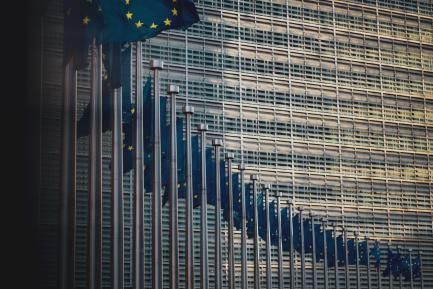The Europe of the negative
«Hungary and several countries in Central Europe refuse to accept the refugee quotas laid down by the European Commission»
«Great Britain does not want to continue in the European Union without limits on access to the Welfare State for immigrants from the European Union residing in the United Kingdom»
«Germany and Finland oppose the introduction of a European deposit insurance scheme as a means of completing banking union»
«For the second time, Denmark refuses to share Europe's justice and home affairs policies»
«Poland opposes European policy on controlling climate change»
«Greece and several countries in Central Europe are not prepared to accept the European Union's new policy to control its external borders»
2015 has been a difficult year for the European Union and 2016 promises to be no different. Conflictive issues abound and headlines such as these will be repeated.
In addition to the political and social tensions arising throughout the long economic crisis are serious geopolitical conflicts and the severe refugee crisis. Such events are placing formidable political pressure on leaders of the member States in a European Union that contains, in the length and breadth of the continent, highly diverse countries whose priorities and interests, both politically and geostrategically, do not always coincide.
This is fertile ground for populist political proposals based purely on national concerns in response to short-term local interests and, since the last European parliamentary elections, we have seen political parties with this kind of perspective progress in many countries.
Europe is therefore going through an exceptional period and requires great leadership to overcome the challenges entailed. In short, it needs leaders of European nations who are capable of increasingly becoming true leaders for Europe as a whole. If this does not happen, we run the risk of ruining the progress made to date in politically shaping Europe. And, even more importantly, of not advancing enough for Europe to be a relevant political power on the world stage, ultimately benefitting its own citizens and the international community.
Promoting the political construction of Europe does not mean imposing European interests over national ones but rather persuading national electorates that, in the long term, the political organisation of Europe as a whole favours all nations on the continent and that the immediate costs and obstacles, which undoubtedly exist, must be tackled via a broad negotiation strategy to ensure that all member States gain in some areas and concede in others, no matter how gradually such a process must be carried out.
Neither does the political promotion of the idea of Europe mean imposing on citizens, from above, a feeling of belonging to Europe which hardly exists today. True political leadership, a leadership with transformative powers, does not merely follow public opinion polls but rather creates the vision of a motivating, common political project that addresses the general interest of Europeans and is based on those values shared by our societies. Based on such premises, the political leadership required by Europe should promote communication and concrete actions (standards and institutions) that, gradually but firmly, establish the same political horizon for the continent's diverse societies.
Only with this kind of transformative leadership can we avoid the decay of European nations which the Europe of the negative is engendering.
Jordi Gual
Chief Economist
31 December 2015


